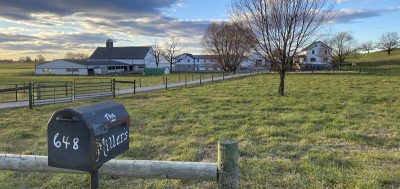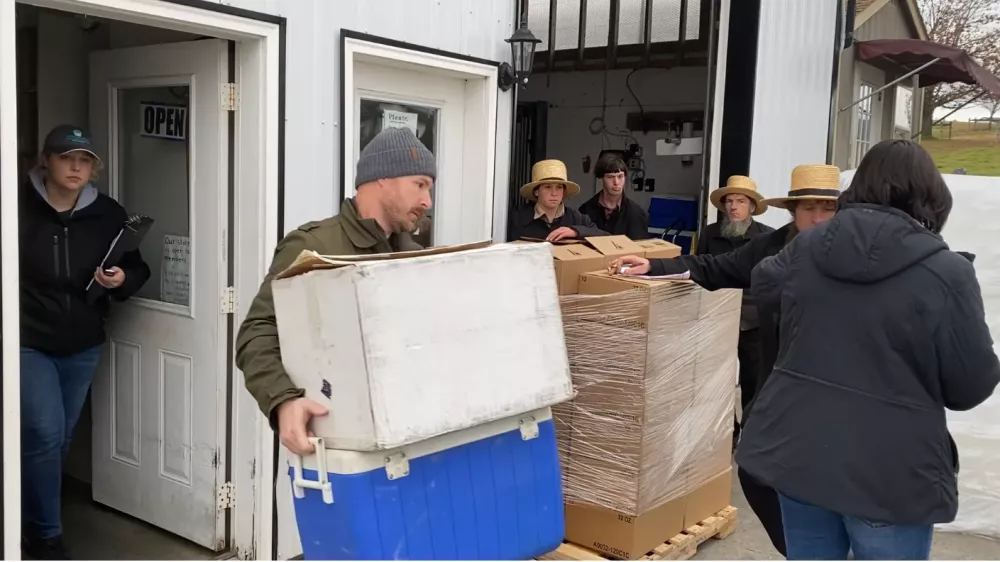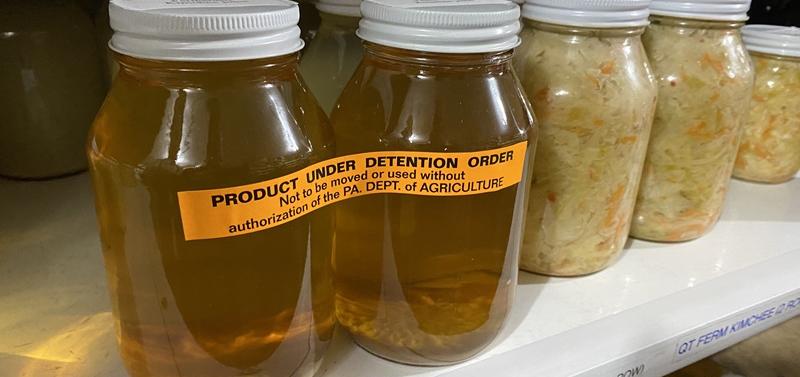Milk and the Police State: Another State/Bureaucratic Steroid Overdose in Action

All Global Research articles can be read in 51 languages by activating the Translate Website button below the author’s name (only available in desktop version).
To receive Global Research’s Daily Newsletter (selected articles), click here.
Click the share button above to email/forward this article to your friends and colleagues. Follow us on Instagram and Twitter and subscribe to our Telegram Channel. Feel free to repost and share widely Global Research articles.
New Year Donation Drive: Global Research Is Committed to the “Unspoken Truth”
***
Last week, in Lancaster County, Pennsylvania, state troopers and investigators executed a search warrant on the farm of Amos Miller. Miller has been producing fresh unadulterated dairy products and grass-fed beef for 40 years. He does not sell to the public. Rather, he sells only to folks who join his club because they want pure raw dairy products, not pasteurized and not chemically treated, as the state commands.

The members of Miller’s club believe that they own their own bodies and that they — and not the government — can decide what they should ingest. Miller has never been successfully sued or credibly charged with harming anyone. He remains without the products the state stole from him, and he remains uncharged with any wrongdoing. The state has prohibited his club members from acquiring the products for which they have already paid.
Here is the backstory.
Not far from where Miller’s farm now stands, in the spring of 1776, revolution was in the air. Congress was meeting in Philadelphia, and it was impatient. Bloody skirmishes between colonial militias and British troops were upsetting the countryside. More British troops were on their way. Congress sensed it needed to do something. It wanted to vote for secession from Great Britain, and it needed a compelling document setting forth the reasons for doing so.
Congress adopted the Declaration of Independence on July 2, 1776. It was dated July 4 and not fully signed until later that summer. The vote was unanimous. The word went forth to the 13 colonies that they were now free and independent.
The word also went forth to the king — whom the British people believed was divinely chosen to rule over them — who interpreted the Declaration as an act of treason and an invitation to war.
The Declaration’s essence is that all persons have natural rights that no government can take away by legislation or command. Those rights can be used freely to pursue and defend life, liberty and happiness. Those rights can also be used to consent or not to consent to a government. And the only legitimate role of government, the Declaration states, is to protect the rights of those who consented.
The colonists were not trying to kill the king — as the French would soon do — they just wanted him gone.
But the real revolution was a revolution of minds — the idea that the government was not legitimate unless consented to and limited; that individual personal freedom, not government power, is the default position. All of this was stirred up by the radicals, articulated by Jefferson, embraced by Congress, achieved by blood and reluctantly accepted by the king.
By 1783, they were free. The revolutionary spirit of maximum individual liberty and minimum government embraced and personified the new America.
Where did it go?
Today, in Amos Miller’s America, we have government — at the local, state and federal levels — that claims authority to right any wrong, regulate any behavior, tax any event and transfer any wealth so long as it can find public support.
What once was a government that needed the consent of the governed not only to exist but also to do anything is now one that requires of us its permission to do nearly everything. What once were liberties guaranteed are now liberties mocked.
How is it that men and women take oaths to uphold the liberties that the founders risked all to achieve and then enter office and ignore them? If I can legally refuse health care, why can’t I legally take the chance of exercising my rights to drink whatever milk product I want to drink? Is there not among the freedoms Jefferson wrote about the freedom to take chances?
Are laws written to preserve liberty or to enforce order? Is the concept of the consent of the governed real, or is it make-believe? Does liberty expand in each generation, or does it shrink? Does the government really believe that our liberties are natural and it lacks legitimacy without our individual consent? Has any living person actually consented to the government we now have, or is the belief that we have consented to the government merely a myth?
Just as the colonists were sick and tired of taxes imposed upon them by London aristocrats, aren’t we sick and tired of police state regulations imposed upon us by nanny staters telling us how to live? A police state is one where the laws do not protect liberty from the government, but protect the government from liberty.
Amos Miller is a successful businessman who delivers products his clients seek. He is also a metaphor for government out of control and out of its mind.

Isn’t government the negation of liberty? Does it have our consent, or doesn’t it? Are our liberties natural to our existence, or aren’t they? Is freedom real, or is it make-believe?
*
Note to readers: Please click the share button above. Follow us on Instagram and Twitter and subscribe to our Telegram Channel. Feel free to repost and share widely Global Research articles.
All images in this article are from Judging Freedom

